Syrian refugee tells how he survived boat sinking in waters where Alan Kurdi drowned
‘It’s better to die trying than just die back in Syria,’ he said
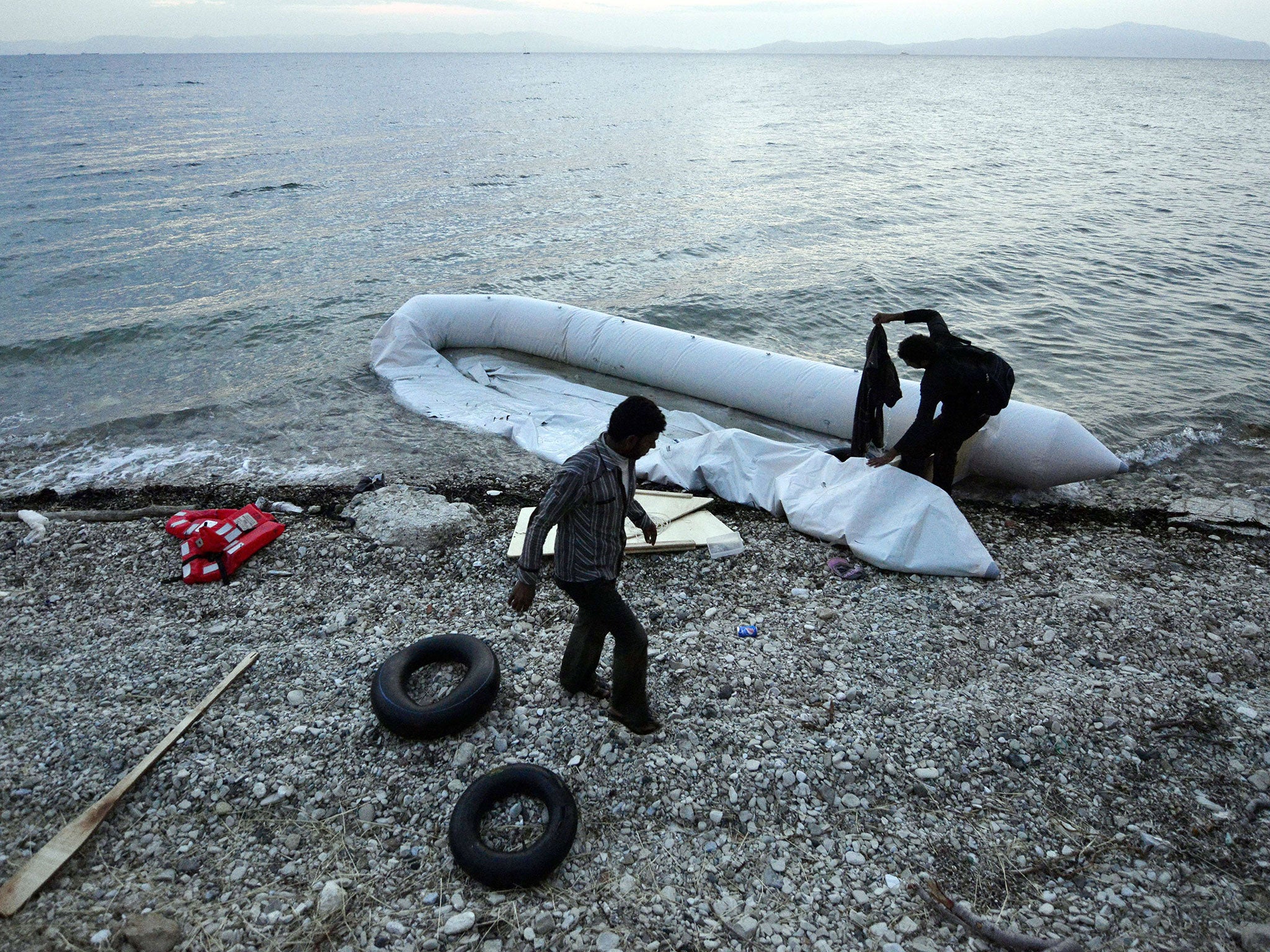
A 20-year-old Syrian refugee has told how he almost drowned attempting the same voyage to Europe that killed Alan Kurdi.
Like the boy, whose body was washed up on a Turkish beach, Firas (not his real name) is one of thousands of people trying to reach safety on Greek islands over the Aegean Sea.
He was packed onto a rubber dinghy with more than a dozen other refugees but just 20 minutes into the journey on 24 August, the boat’s engine cut out.
Firas told aid workers from International Rescue Committee (IRC) UK the weather gradually worsened until six-foot waves were crashing into the boat and it started to sink.
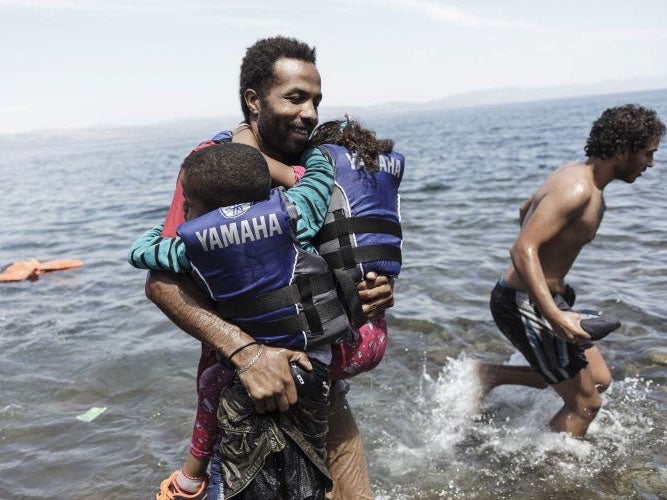
He and three friends jumped into the sea and gave rubber rings to two teenagers who could not swim.
But as they battled to stay afloat, three Iraqi refugees clung to the sinking dinghy, with one man sending a goodbye message to his father. Firas, from Damascus, believes they and at least two others drowned.
He was picked up by the Greek coastguard as he neared the shore of Lesbos after swimming for seven hours.
“Even if I knew the boat was going to sink, I would still have made the journey,” Firas told the IRC.
“Even if I had to swim all the way from Turkey. It’s better to die trying than just die back in Syria.”
Here is Firas’s story in his own words:
It was one in the morning when we attempted to make the crossing. The water was calm when we started. The boat was made for ten people but there were 14 of us, including the Turkish driver.
We were sailing for 20 minutes when we could hear the engine was having problems. After around half an hour the engine completely died. We were exactly between Turkey and Greece. I know because I checked the GPS on my phone. The driver spent an hour trying to fix it but he couldn’t. The weather started to get worse and waves as high as a meter and half started to hit the boat.
Quickly the boat became full of water and started to sink. I rang the Greek coastguard and started shouting ‘help us, help us’ but they couldn’t really hear me because my phone was wrapped in a plastic bag to protect it from the water. So I sent a Whatsapp message giving my GPS and asking them to help us. I also sent my family a message with my GPS and explained the situation but said ‘don’t worry, even though the weather is bad, we’ll make it across’.
When we knew that the boat was definitely going to sink, me and my three friends from Syria jumped into the sea. We didn’t have any life jackets, just two children’s rubber rings between four of us. We gave them to the two youngest who were only 15 and 17 because they couldn’t really swim.
Three Iraqis wouldn’t come. They said ‘we can’t swim’. One of those who stayed used Viber to phone his Dad from the boat. He said ‘Hello Father, the boat is sinking so I will die.’ It was his last message.
We left our bags on the boat. Some took off some of their clothes to swim better. I didn’t and now have sores across my legs and neck where the clothes rubbed against my skin.
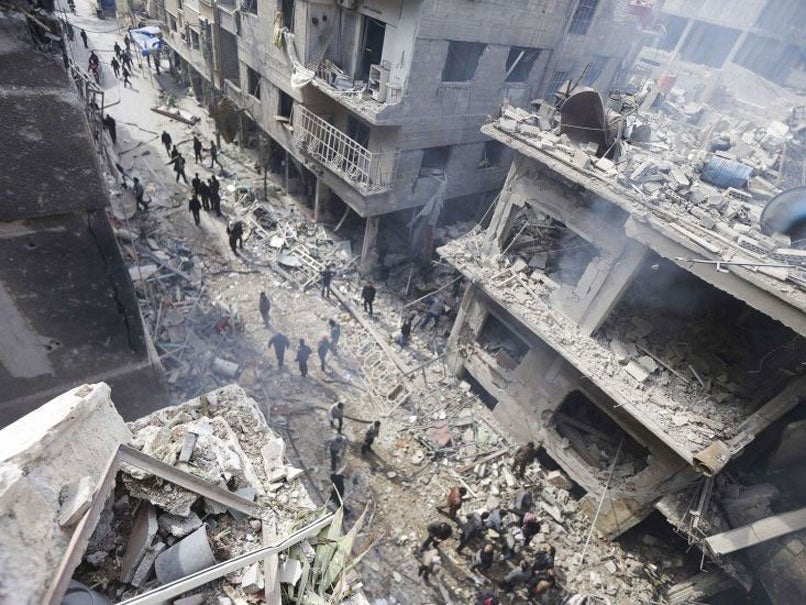
We pushed my friends in the rubber rings. We would swim for around fifty minutes and then rest for around ten minutes then start swimming again. For the first two hours I could still use my phone because it was protected by the plastic and I could use the GPS to make sure we were going in the right way. After that it got wet and stopped working.
After four hours of swimming we came across one of the Iraqis from the boat. I shouted ‘come with us’. He was so tied. He had started to give up and was going to die. A little later we came across another Iraqi and he was saying ‘I can’t carry on’. I could see the light of Lesbos far away, so I told everyone ‘Don’t give up. Let’s pray. We can make it, we can get there.’ and we all prayed together saying ‘God, please save us’.
We were getting closer to Lesbos, but the rest didn’t have the energy to push the youngest in the rubber ring. So I said to them, ‘OK, I’ll take care of him and push him on my own.’ They were all swimming so slowly, so I went ahead pushing my friend. I said I will swim to the beach and then head back out to the water with the rubber ring so it can help someone else.
The water was very cold and the waves were really strong. So was the current. But I never lost my faith or my hope. Even when people were starting to give up. I was thinking if I give up then they will all die. I decided either we all make it or we all die. I only had one thought and only one option. Don’t stop.
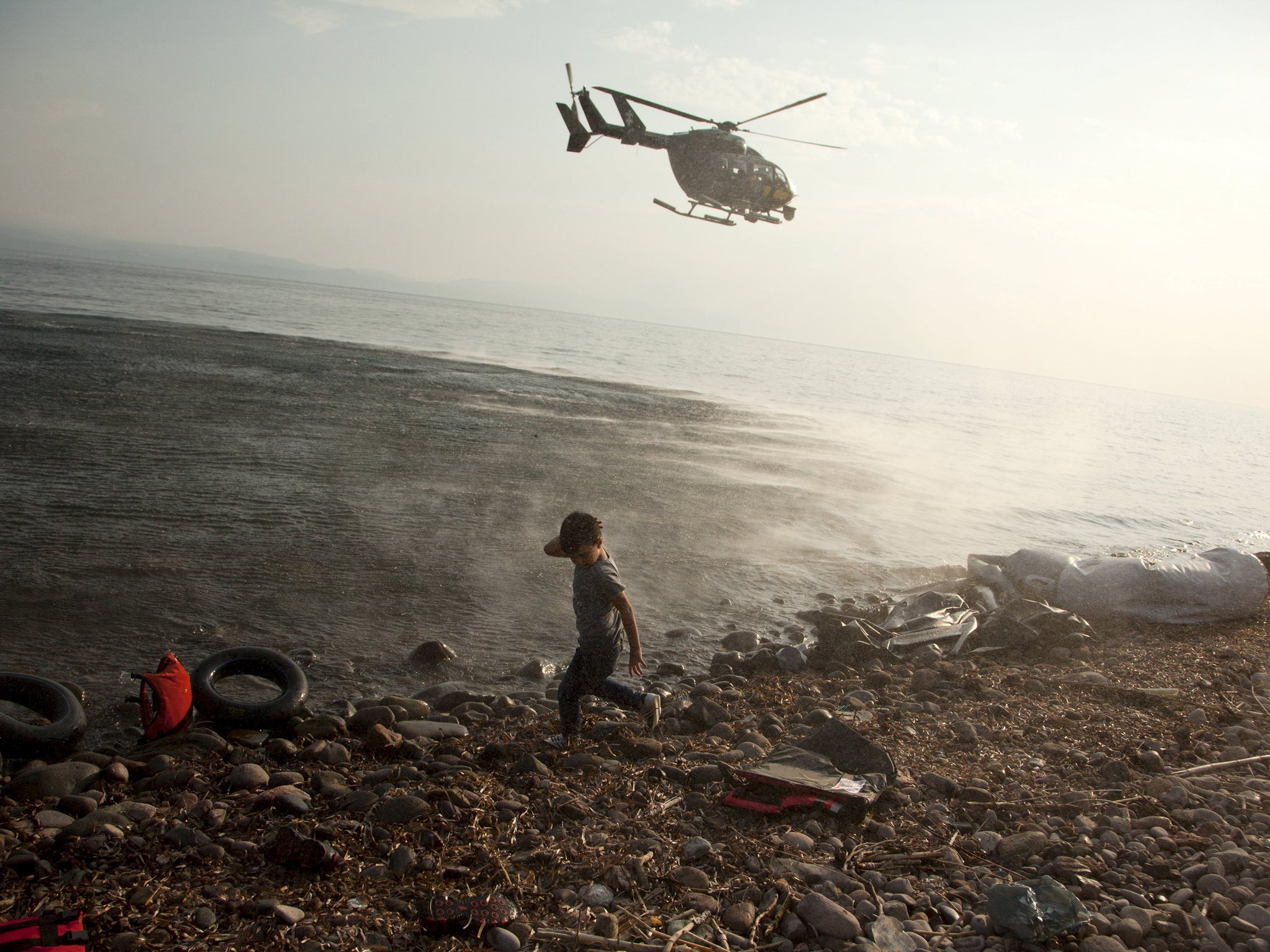
I was picked up by the coastguard after seven hours of swimming. By the time they reached me I was only 20m from the beach. It would've been better if they hadn’t because I had made the whole journey alone. They said they had been looking for me for six hours. We heard many helicopters, but it was so dark that they couldn’t see me.
The coastguard showed us the bodies to two other Iraqis who had tried to swim. I recognised them from the boat. How can their families recover their bodies so they can be buried?
We paid $1,900 (£1,200) each to take the boat. It makes me feel very angry thinking about the Turkish smuggler who took our money and left us to die. We are like cargo to them. They don’t care if we live or die.
Even if I knew the boat was going to sink, I would still have made the journey. Even if I had to swim all the way from Turkey. It’s better to die trying than just die back in Syria.
I lost everything on the journey but I have my life, so I am ok. I’ve managed to call my mother and tell her I made it. I just thank God that me and my friends survived.
Interview by Paul Donohoe
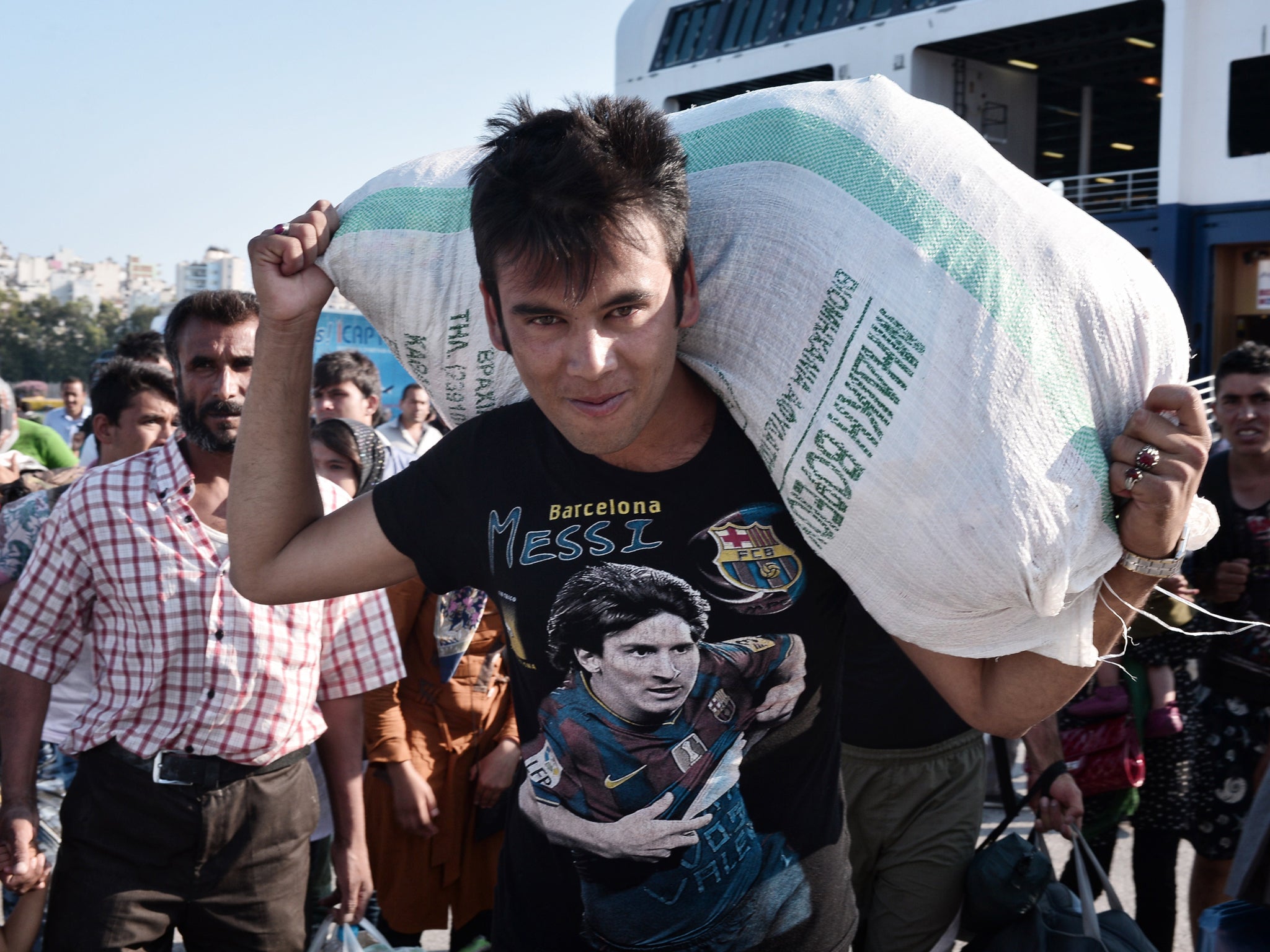
The IRC, which is supporting refugees at the Kara Tepe camp on Lesbos, provided emergency aid of food, water, tents and money, to all eight survivors.
Almost 100 refugees have drowned crossing the Aegean from Turkey to Greece so far this year, on top of around 2,500 who have died in the Mediterranean in the same period, according to the International Organisation of Migration.
Kirk Day, the IRC’s Field Director in Lesbos, said that despite its comparatively short length, the voyage from Turkey to Greece is “far from safe” and will only become more dangerous as summer fades.
“Worryingly, some people are crossing without life jackets and travelling on dinghies containing just a couple of rubber-rings as floats,” he added.
“With very few safe and legal routes into Europe, refugees are left with no option but to take extraordinarily dangerous illegal journeys by sea to Greece and Italy.
“With an estimated 200,000 refugees still planning to make the journey to Greece this year it is inevitable that we will see a further loss of life until Europe’s policies change."
This newspaper has started a campaign for the UK to welcome a fair share of refugees.
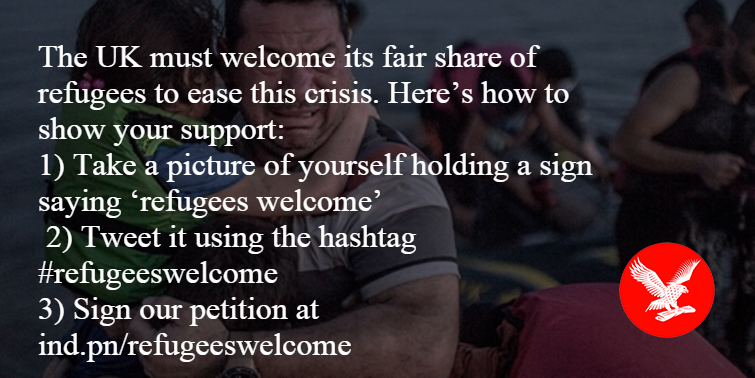
Join our commenting forum
Join thought-provoking conversations, follow other Independent readers and see their replies
Comments
Bookmark popover
Removed from bookmarks